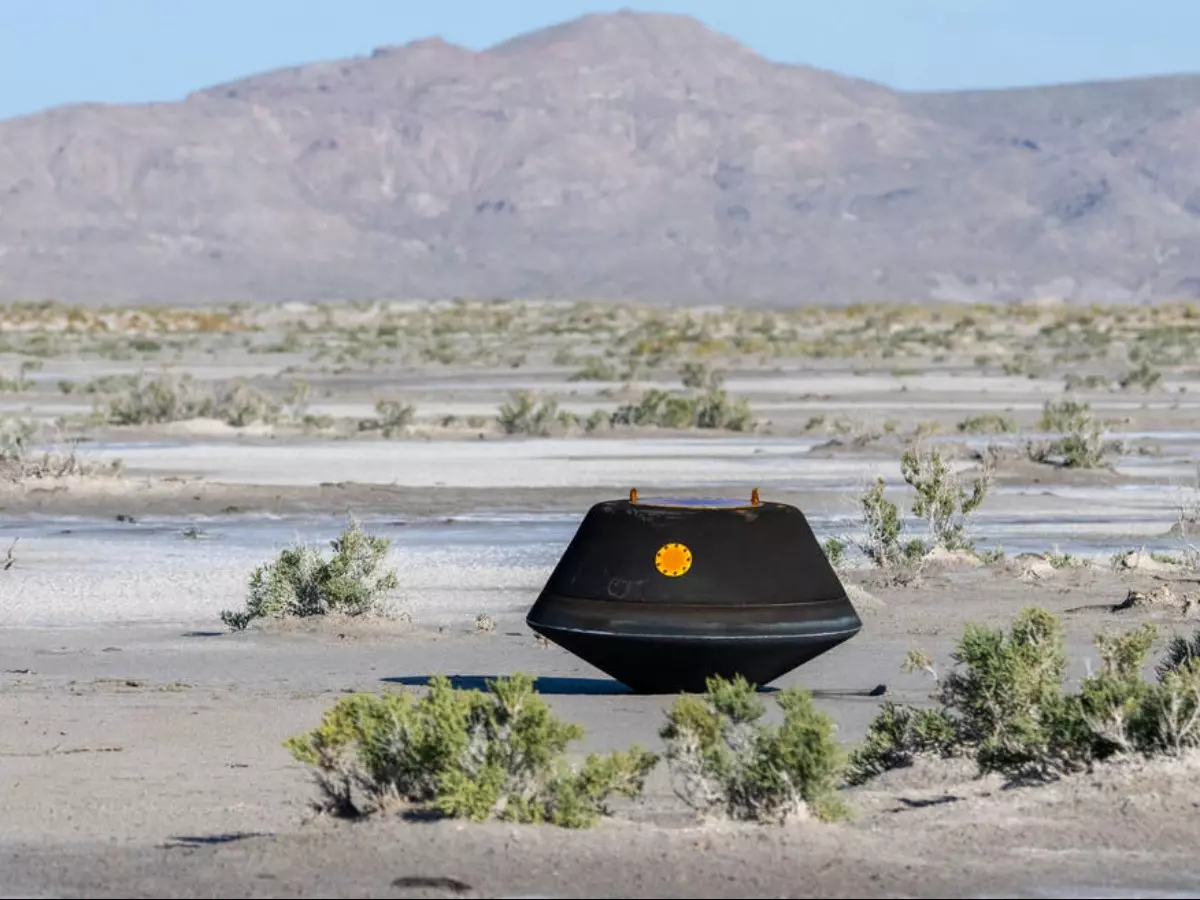NASA Mission Successfully Returns Largest Asteroid Sample Ever To Earth
The capsule with samples of rock and dust collected from an asteroid called Bennu landed on Earth on Sunday, in an area of the US Department of Defense

On September 8 of 2016, NASA launched the OSIRIS-REx (Origins, Spectral Interpretation, Resource Identification and Security ¨C Regolith Explorer)mission so that it may land on an asteroid and retrieve a sample. Now, that sample has finally returned. "We've spotted the #OSIRISREx capsule on the ground," NASA announced on X, with a clip of the same.
"The parachute has separated, and the helicopters are arriving at the site. We're ready to recover that sample!"
We've spotted the #OSIRISREx capsule on the ground, the parachute has separated, and the helicopters are arriving at the site. We're ready to recover that sample! pic.twitter.com/ZmPyb8fyrR
¡ª NASA Solar System (@NASASolarSystem) September 24, 2023
A historic moment for space research
The capsule with samples of rock and dust collected from an asteroid called Bennu landed on Earth on Sunday, in an area of the US Department of Defense. The capsule was then transported by helicopter to a temporary clean room, where it is currently connected to a continuous flow of nitrogen.
Putting the sample under a "nitrogen purge" is important because nitrogen doesn't interact with other chemicals and the container inside the capsule is able to keep out contaminants from Earth, making scientific analysis possible.
Also read: Giant Solar Shield Tethered To Asteroid Could Slow Down Climate Change On Earth
"The returned samples collected from Bennu will help scientists worldwide make discoveries to better understand planet formation and the origin of organics and water that led to life on Earth, as well as benefit all of humanity by learning more about potentially hazardous asteroids," NASA wrote.
 NASA
NASA
"Congratulations to the OSIRIS-REx team on a picture-perfect mission ¨C the first American asteroid sample return in history ¨C which will deepen our understanding of the origin of our solar system and its formation. Not to mention, Bennu is a potentially hazardous asteroid, and what we learn from the sample will help us better understand the types of asteroids that could come our way," said NASA Administrator Bill Nelson.
Also read: New Space-Scanning Algorithm Spots 'Potentially Hazardous' Asteroid
 NASA
NASA
The Bennu sample weighs 250 grams and will be transported to NASA's Johnson Space Center in Houston on September 25 where it will be disassembled. The samples inside will be studied, and distributed to scientists worldwide.
What do you think about this? Let us know in the comments below. For more in the world of technology and science, keep reading Indiatimes.com.
